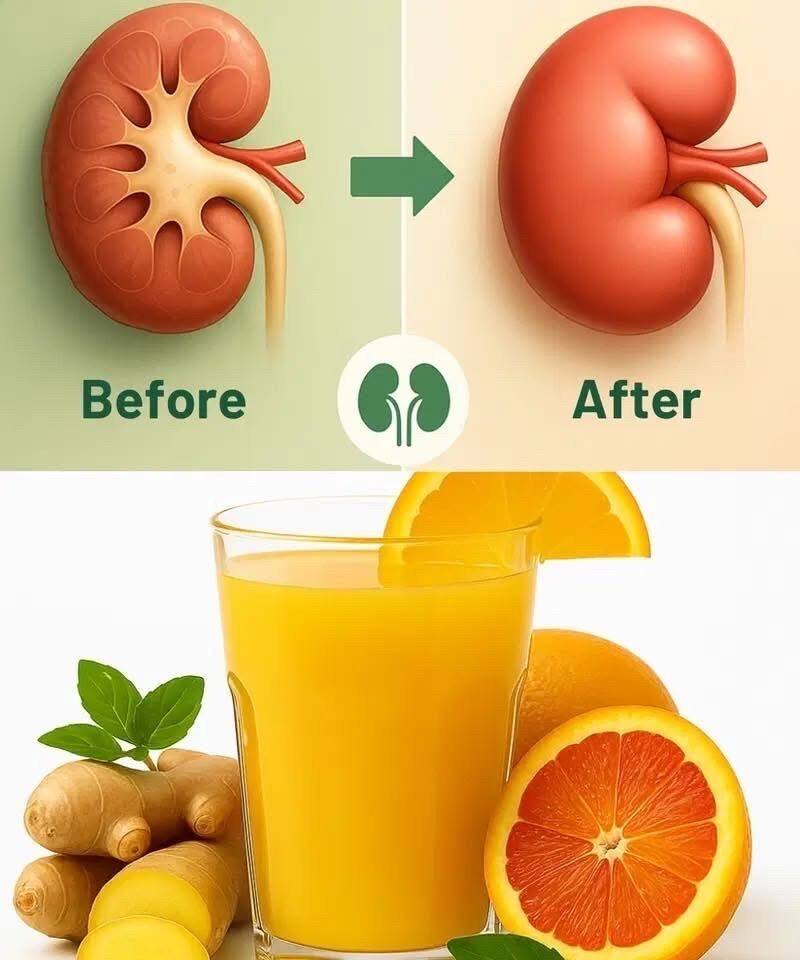
As the years pass, our vital organs — including the kidneys, liver, and lungs — work tirelessly to keep us alive and thriving. Yet many of us don’t realize just how much these organs rely on small, everyday choices to stay healthy. The good news? Supporting them doesn’t require major life overhauls or complicated routines. Simple, consistent habits rooted in nature can make a remarkable difference in how we feel, both physically and mentally.
Hydration is one of the simplest and most powerful ways to protect your kidneys and support overall bodily functions. The kidneys act as your body’s natural filtration system, removing waste and balancing fluids. Drinking enough water helps these organs flush out toxins more efficiently and maintain proper electrolyte levels. A good rule of thumb is to aim for urine that’s clear or a very light yellow — this is an easy visual clue that you’re staying well-hydrated.
A balanced, nutrient-rich diet is equally important. Foods packed with antioxidants — such as colorful berries, leafy greens, beets, nuts, and citrus fruits — help combat free radicals and reduce inflammation. These nutrients protect cells throughout your body, including those in your liver, which works nonstop to process everything from food and medications to alcohol and environmental toxins. Foods like garlic, turmeric, and cruciferous vegetables (like broccoli and Brussels sprouts) have also been shown to support liver health.
Breathing clean air is crucial for lung health, yet often overlooked. Avoiding polluted environments when possible and using indoor air purifiers can greatly improve the quality of air you breathe. Spending time in nature — for example, walking in a forest or by the sea — can offer your lungs a much-needed break from urban pollutants. Simple breathing exercises, such as deep diaphragmatic breathing or pursed-lip breathing, can help strengthen the respiratory muscles and promote better oxygen exchange.
Physical activity is another powerful way to nurture your organs. Exercise improves circulation, allowing oxygen and nutrients to reach tissues more effectively. Movement also supports detoxification through increased sweating and deeper breathing. Keeping a healthy weight helps ease the burden on the liver, kidneys, and lungs, reducing your risk of chronic conditions such as fatty liver disease, kidney stones, and respiratory difficulties. Even gentle activities like walking, yoga, or stretching can have meaningful benefits.
Limiting alcohol and processed foods is essential for liver health. Excessive alcohol consumption can damage liver cells and lead to inflammation, scarring, or even liver failure over time. Processed foods often contain high levels of sodium, unhealthy fats, and added sugars, which can put extra strain on both the liver and kidneys. Instead, focus on whole foods: fresh fruits and vegetables, whole grains, lean proteins, and natural beverages like herbal teas, lemon water, or infused water with fresh herbs and fruits.
Prioritizing sleep is another crucial — and often underestimated — step. During sleep, your body enters a state of repair and regeneration. This includes detoxifying the brain, repairing tissues, balancing hormone levels, and strengthening immune function. Aim for 7 to 9 hours of quality sleep each night to give your organs the rest they need to function optimally.
Incorporating these habits may seem small on their own, but together, they build a powerful foundation for long-term health. By staying hydrated, eating a colorful and balanced diet, breathing clean air, moving your body, limiting harmful substances, and prioritizing rest, you create an environment in which your organs can thrive naturally.
Over time, these simple changes can lead to noticeable improvements in your energy levels, mental clarity, and overall sense of well-being. You may find that you recover more quickly from illness, experience fewer digestive issues, and feel more resilient in the face of daily stress.
Remember, it’s never too late to start giving your organs the support they deserve. By caring for them daily, you’re investing in a healthier, more vibrant future — one small habit at a time.


